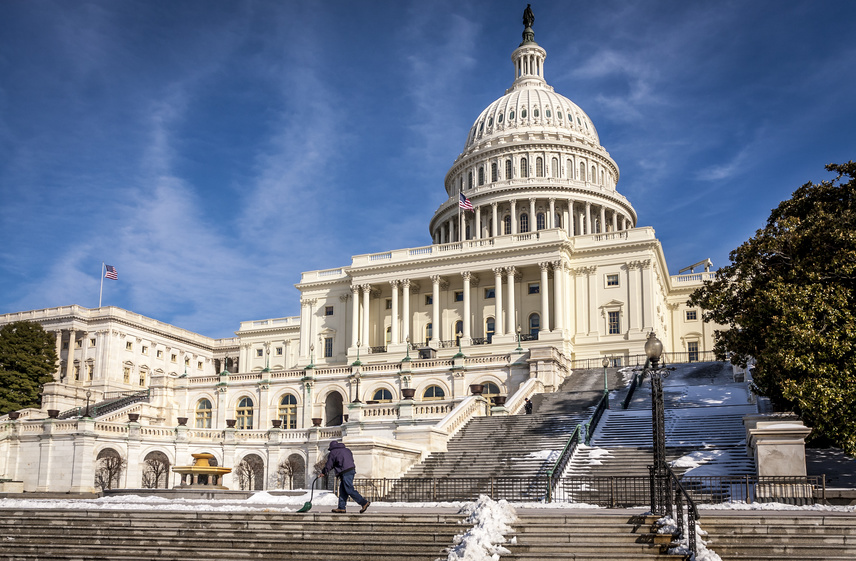Baker McKenzie’s Sanctions Blog published the alert titled “US Government blocks Russian aircraft from using US airspace” on 2 March 2022. Read the article via the link here. Please also visit our Sanctions Blog for the most recent updates.
In a sign that Congress continues to pursue bipartisan efforts to combat the use of forced labor in supply chains, Senators Josh Hawley and Kirsten Gillibrand have reintroduced the Slave-Free Business Certification Act of 2022. The Act would impose significant new compliance and disclosure requirements for many companies, requiring businesses with annual, worldwide gross receipts exceeding USD 500 million to conduct annual audits of their supply chains to detect any use of forced labor, report findings to the US Government, and face potentially significant fines and penalties for violations.
On 24 February 2022, various US government agencies published their respective reports on supply chain policies for six key industrial bases pursuant to Executive Order 14017, “America’s Supply Chains”. These Reports identify key weaknesses in some of the nation’s most crucial supply chains and offer multi-year strategies to help address those weaknesses. The White House issued a statement and capstone report following the publication of the Reports.
Christopher Hanna discusses Republican lawmakers’ concerns regarding whether the OECD’s Pillar Two Model Rules are good for American businesses.
The use of endorsements, testimonials and reviews in advertising continues to be an area of active Federal Trade Commission (FTC) enforcement. Several recent actions by the FTC illustrate that it is prioritizing enforcement against deceptive or misleading endorsements, testimonials and product reviews and imposing significant penalties on companies engaging in such practices. In addition to its enforcement activities, the FTC has also issued recent guidance to enable marketers, platforms and others to consider whether their conduct might attract FTC scrutiny.
A significant new rulemaking proposal from the U.S. Securities and Exchange Commission (SEC) would fundamentally alter how private investment funds negotiate and communicate with their investors. The proposal (“Proposal”) would prohibit indemnification of managers for many types of mistakes, restrict some common side letter terms, require auditors to report certain events to the SEC and mandate quarterly reporting for private fund investors. Crucially, some of the Proposal’s prohibitions would, for the first time, substantively regulate unregistered and exempt investment advisers, both inside and outside of the United States.
On February 21, 2022, the White House issued a new Executive Order that imposes comprehensive sanctions on the so-called Donetsk People’s Republic (“DNR”) and Luhansk People’s Republic (“LNR”) regions of Ukraine. Concurrently with the issuance of the Executive Order, the US Treasury Department’s Office of Foreign Assets Control published six general licenses authorizing certain transactions involving the targeted regions. These sanctions were imposed in response to the Russian Government’s decision to recognize the DNR and LNR as independent from Ukraine on the same day.
On February 22, 2022, the US Government issued a number of additional sanctions measures against Russia in response to President Putin’s recognition of the independence of the “so-called Donetsk People’s Republic (DNR) and Luhansk People’s Republic in Ukraine (LNR)” and his request to deploy forces to those regions – with President Biden characterizing these developments as “the beginning of a Russian invasion of Ukraine.” The new US sanctions measures build on the comprehensive region-wide sanctions imposed on the two territories of DNR and LNR on February 21, 2022, as reported in our prior blog here.
The Civil Aviation Law Regulations were amended in response to Mexico’s downgrade to Category 2 by the United States Federal Aviation Agency. These reforms propose measures to improve the safety of Mexican aviation and seek to correct the lack of compliance determined by the Federal Civil Aviation Agency with the safety standards imposed by the Convention on International Civil Aviation of the International Civil Aviation Organization. In addition, the reform incorporated provisions related to the operation of Remotely Piloted Aircraft Systems, better known as drones.
Late last year, after a month-long trial, a Baker McKenzie team secured a complete defense verdict in favor of our client MedMen and its two co-founders. The trial was the culmination of three years of intense litigation. The result was publicized in Law360, among other outlets.
In this unique three-part webinar series, members of Baker McKenzie’s North America Trial Team will provide insight surrounding this litigation win and the steps taken to achieve it, from inception to defense verdict



